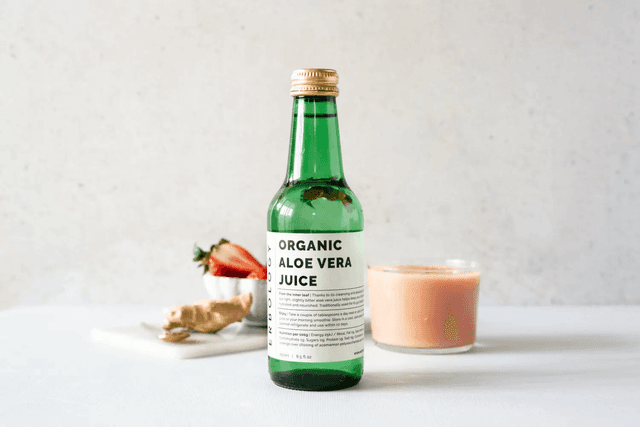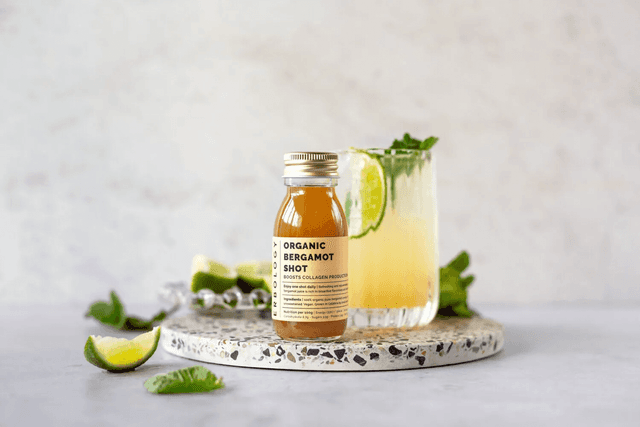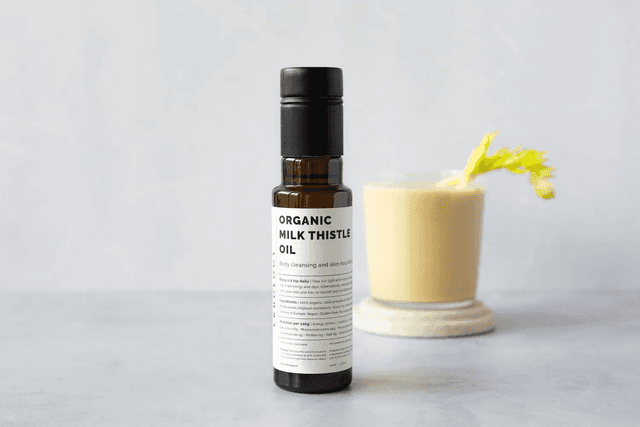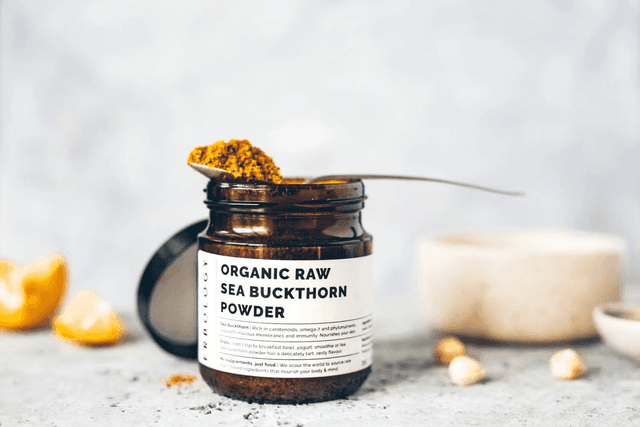04 May 2020
Are supplements safe?
Health and wellness is a big business, and nutritional supplements play a big role in it. In 2019, Grandview Research estimated that the global market for health supplements was worth $123 billion.(1) And it's likely to continue to rise.
Supplements are so ubiquitous that you've probably taken one at some point, or perhaps have a bottle in your bathroom cupboard at the moment. That would put you in line with the majority of Americans; a survey by the American Osteopathic Association found that 86% of American adults take some kind of supplement.(2) Some may even take more than one.
All of us are keen to improve our overall wellbeing and protect ourselves against disease. And, while we know that a healthy diet and regular exercise are the best way to do that, we often turn to supplements to 'boost' what we're already doing. It's easy to think that, if we haven't quite been hitting our five-a-day, a vitamin supplement might help us fill in some of the gaps!
But can supplements replace the vitamins, minerals and nutrients we can source from whole foods?
What are supplements?
First, let's define what exactly we mean by supplements.
Here, we're talking about any product that is intended to add nutritional value to your diet or improve your health.
Some of the most common supplements are single vitamins such as vitamin C or D. However, you can also take supplements for minerals such as iron, zinc and magnesium. Some of the most popular supplements are 'multivitamins', which include lots of different micronutrients. They are often marketed towards specific groups such as men, women, or the elderly.
They come in all sorts of formats, from capsules and tablets to effervescent pills, jellies, drinks and more.
Supplements are designed to improve your health by either increasing your intake of specific nutrients, or addressing a deficiency in a specific nutrient. However, there is some debate about their effects on your health. Below, we've answered a few of the most common questions around supplements and how good they are for you.
Related reading
Plant-based diet: Let food be thy medicine
Seven immunity boosting foods for your diet
1. Nutrients from supplements are the same as natural ones, right?
Perhaps the most important point to make about supplements is that they are a poor substitute for real foods.
Take, for instance, vitamin C, one of the most common supplements on the market.. When we hear 'vitamin C', most of us think immediately of fresh fruits and vegetables, especially citrus. It's logical to assume that's where the vitamin C in supplements comes from.
However, most of the time that isn't the case.
Just because a substance occurs naturally in some foods, it doesn't mean that a supplement will contain the natural version of it. In fact, many of the vitamin C supplements on the market contain a synthetically-made version of the nutrient.
It has a similar molecular structure to natural vitamin C, but it is not the same. Rather than being naturally produced in a plant, it is made in a laboratory.
You may also come across 'crystalline vitamins'. These are natural foods which have been treated to distill the desired vitamin, which can no longer be said to be natural. During processing, its cell structure changes, becoming crystalline. The research we cite in this piece looks into synthetic and crystalline supplements.
There is also some debate about how healthy it is to consume vitamins and minerals in an isolated state. When you eat whole foods, you absorb their vitamins, minerals, fibre, protein, fat and phytochemicals together. You also get a dose of enzymes, micronutrients and trace minerals - and those are just the ones we know about!
There's a lot we still don't know about how nutrients interact with one another in terms of our health. However, if you're relying on supplements for your intake of a specific nutrient, you may be missing out on benefits from other substances.
Related reading
How gut health is linked to the immune system
Eat these 7 prebiotic and probiotic foods for your gut health
2. Are supplements nutritious?
Supplements work medically, rather than nutritionally. Like medicine, they are intended to treat a specific deficiency or a more general lack of nutrients.
They are not a 'food', and they don't replace food. They don't have the macronutrients (e.g. protein, fibre and carbohydrates) of normal foodstuffs, and they don't contain the wide range of trace micronutrients found in natural foods.
Medicines and foods both play a role in our health, but that role is very different.(3) Food is used to build up a strong, healthy body and maintain your overall wellbeing. Medicine is used to treat a specific health problem.
If you are not suffering from a confirmed health issue which requires you to increase your intake of a specific, isolated nutrient, altering your diet may be the healthier option.
For instance, if you feel you may need more iron, you could choose between eating more iron-rich foods or taking a supplement. However, eating foods such as beans, leafy greens and dried fruits will provide you with your iron plus a wealth of other healthy nutrients such as fibre, vitamins and other minerals.
3. Aren't supplements better than nothing?
Another reason why supplements are so appealing is that they claim to take the hard work out of eating healthily. Instead of having to research which foods to eat and changing your diet, you can take a tablet and get the same effect. Right?
Sadly, there are no quick fixes for good health. Supplements are no exception!
Let's look at a concrete example. Vitamin E is in foods such as spinach, avocado, and almonds. It is a powerful antioxidant.
Studies suggest that when you get Vitamin E in natural form, your body can take it in twice as well as if you get it in synthetic form.(4) So, even if your supplement promises your full RDA of vitamin E, you may not actually be taking it into your body.
The specifics vary from vitamin to vitamin and substance to substance. However, this is an example of how your supplement may not work the way you think it does.
Aside from other things, it encourages you not to look hard enough at your diet. You end up not getting adequate nutrition from either your diet or the supplement, even though you think you are taking the right steps to care for your health.
As with all things in life, you will reap the rewards of good health if you put the effort into building a good diet.
4. Can supplements do more harm than good?
A little-known fact about dietary supplements is that sometimes they can actually damage your health.
While many vitamins and minerals are healthy in the right dose, too much can cause harm. This is called 'hypervitaminosis'.
When you eat whole foods, you get a healthy dose of vitamins and minerals alongside lots of other substances. It's very difficult to overload your body with any given nutrient this way, because of the way foods are digested and absorbed into your body.
Synthetic supplements, on the other hand, are just one big dose of a single vitamin or mineral (or several types, without any substances like proteins or fibre to break them up). These can be toxic when taken in excess, and can lead to illness.(5)
Iron deficiency is one of the most common nutrient deficiencies in the world; however taking too much iron can actually poison you. In the first instance, it can cause stomach pain and nausea, but in severe cases where iron has built up in the vital organs, it can be fatal. Acute iron poisoning can be caused by taking too many iron supplements.
If you suffer from anaemia, your doctor will be able to advise you on if you need to take an iron supplement and carefully control the dose. If you do not have a confirmed health condition which requires an iron supplement, you're probably better off sticking to iron-rich foods which won't overload your system.
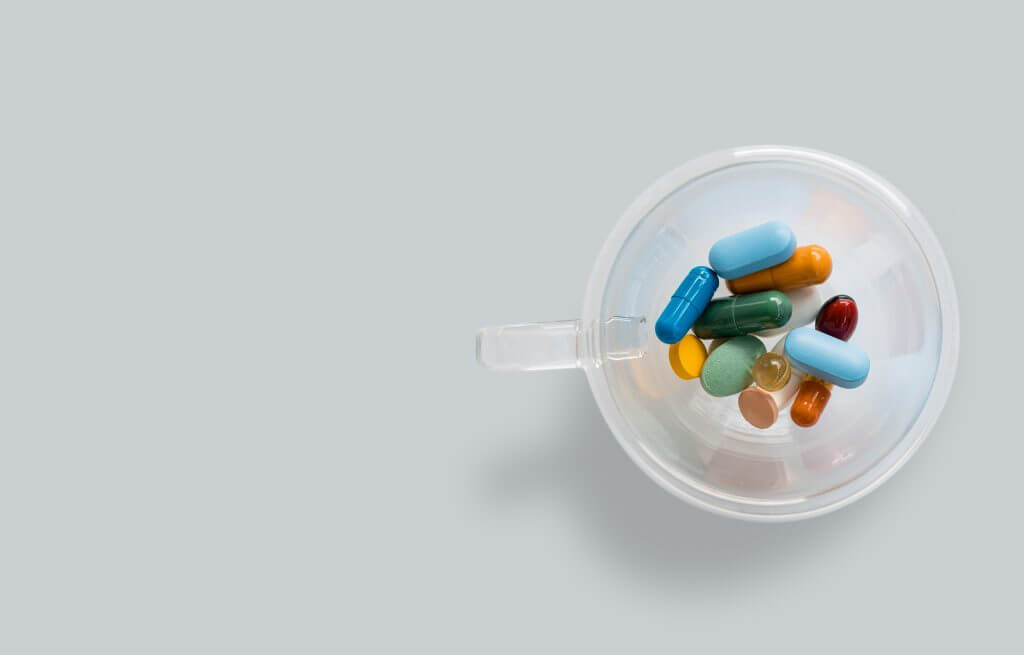
4. Are supplements safe?
Many recent studies suggest that even beyond the things discussed above, synthetic supplements are not safe and may actually do us harm. In other words, what we thought was a shortcut to good health might lead us to an entirely different place altogether.
There are so many types of supplements. It is best to go one by one as we substantiate some of these doubts.
Multivitamins
Multivitamins are the most popular supplement by far. Many people see them as a one-stop solution to getting everything you need.
Lots of people choose to take a multivitamin supplement in an effort to take care of their heart health. However, the Physicians' Health Study II monitored daily use of multivitamins in 14,000 middle-aged men over a span of 10 years. No improvement of heart health or mortality was observed, and the rate of strokes was unchanged.(6)
Further, other studies have linked multivitamin use to an increased risk of cancer.(7)
Single and paired vitamins
If you're hoping to look after your heart, you might then turn to single (or paired) vitamins for help. However, there's not a lot of great news there, either.
An evidence review for the US Preventive Services Task Force looked into the ability of single and paired vitamins to help heart disease. It did not find any benefit. The authors say that the conclusion is likely to be reliable but called for more research before the result could be considered conclusive.(8)
And what about the brain?
A systematic review of 14 scientific trials found no evidence that single and paired vitamins boost brain health.(9) The reviewers looked at studies on vitamin B6, B12, and folic acid, and found no significant improvement in cognitive function in people of normal or impaired brain health.
Antioxidants and minerals
Antioxidants became well-known just a few years ago and are now featured in products from supplements to skincare. They are present in many natural foods and are prized for their ability to defend you against damage caused by free radicals.
However, a large body of studies suggests that supplementing with antioxidants may heighten chances of some types of cancer.(10)
A review was done of 27 clinical trials. Just 7 reported some benefit for heart health or reduction of incidence or mortality of cancer from taking antioxidants. 10 studies found no benefit at all. A remaining 10 found that people taking antioxidant supplements were left worse off, with higher rates of lung and breast cancer incidence, among other diseases.
Meanwhile, mineral supplements are also very popular among the health-conscious. But they may have their drawbacks, too.
A study looking at vitamin and mineral supplement use and incidence of upper gastrointestinal cancers in a large sample of more than 490,000 individuals had some concerning results. The researchers found that the use of iron and zinc supplements resulted in higher rates of gastric noncardia adenocarcinoma (a type of stomach cancer).
That said, the same study did find lower incidences of other types of cancer in other instances of vitamin and mineral supplement use.(11)
A different study suggests that taking calcium supplements could double the risk of death by cancer. Dr. Fang Fang Zhang of Tufts University comments, "Our results support the idea that, while supplement use contributes to an increased level of total nutrient intake, there are beneficial associations with nutrients from foods that aren't seen with supplements."(2)
It looks like any benefits from mineral supplements are likely to come hand-in-hand with risks. Whole foods, on the other hand, come only with universally-accepted benefits.
Related reading
The seeds of nutrition: Top ten seeds for your healthy diet



